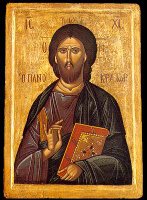The Sociology of Protestantism
Speaking of clergy who blog…Rick Warren now has a blog, although I understand you can’t post comments. Purpose-filled blogging.
I came across an interesting section in the book I am reading—The Sociology of Protestantism. Mehl lays out a rationale for looking at religion from a sociological perspective (the Modernist lens—empirical rationalism…although he acknowledges that there are limits to which sociology as a science can explain the invisible mystery that is the object of faith—God--"What sociology lacks, what every other science also lacks, is the possibility of grasping this revelation as the act of God revealing himself." p. 10). He suggests that the practice and activity of the different Christian confessions are influenced by the various ways in which they conceive of revelation.
In schematic fashion, we can say that for Catholicism this revelation resides in a sacred doctrinal deposit entrusted to a hierarchy which looks after its integrity, its teaching, and its explication; for Protestantism it resides in a living word which resounds from out the holy books of the Old and New Testaments, primarily when it is preached to the assembled community; for Orthodoxy, finally, it resides in a liturgy of the church which, because it is lived drama, abolishes the distance between the events of holy history and the present time, and thus integrates the faithful into sacred time.
From this device the essentially different forms of religious behaviour. The primary concern of the Catholic Church is to assure the continuity of the hierarchy (the foundation of the teaching church and of the validity of the sacramental acts) and the submission of all to the hierarchy (this primary concern has resulted, during certain periods, in a suspicion regarding the free usage of the Bible by the faithful).
The primary concern of the Protestant churches is to assure the preaching of God’s word and the diffusion of the Holy Scriptures; the constitution of these churches gives clear indication of the will to dispose everything with a view to permitting, above all else, an unceasing preaching of Scripture, even more than to assuring the distribution of the sacrament: the translation of the Bible into the common tongues and its intensive diffusion is the point of all missionary activity. The spring of personal piety is to found in the private reading of and meditation on Scripture. This also is the source of a constant preoccupation with elevating the cultural level of the faithful.
The primary concern of the Orthodox Church is to assure the celebration of the Divine Liturgy. This celebration takes the place of catechetical instruction. It is the imprint of the liturgy on the souls of believers which maintains them in the faith. Thus one sees the Russian Orthodox Church accepting with a certain facility the restrictions which the governments impose on its external activities and even on its teaching: the essential is safe as long as the church can celebrate its liturgy.

 Andrew Jones (a.k.a. Tall Skinny Kiwi) has an interesting
Andrew Jones (a.k.a. Tall Skinny Kiwi) has an interesting 











